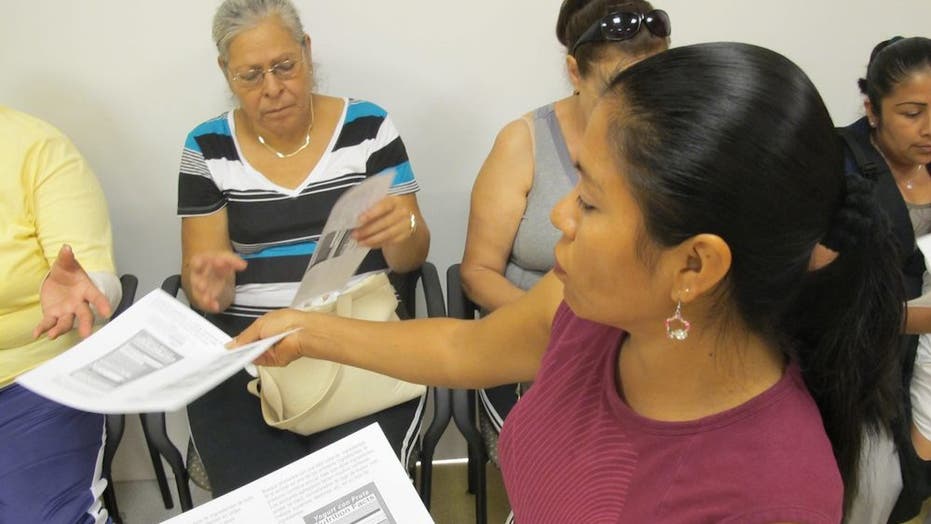Breast cancer has become the number one killer of Latinas. But it doesn’t have to be. “If detected early, it's not a death sentence. A lot of women survive breast cancer,” says Ysabel Duron, cancer survivor, founder and executive director of the non-profit Latinas Contra Cancer.
So survival depends on prevention, on having yearly mammograms and undergoing genetic testing if there’s a family history of the disease. For many Latinas, this means getting the right information and counseling – a challenge in many immigrant communities, where lack of access, fear and cultural factors are barriers to getting the message through. That’s why the concept of promotoras has helped bridge the gap.
“They’re the first line of defense… or offense,” says Duron. “They’re integral in connecting our community, providing information and access to health care resources, particularly to low income, undereducated, underserved, uninsured, Spanish-speaking immigrants.”
Promotoras are educators, advocates, mentors and outreach workers. Although the majority are women, some men also train to be health providers. A common practice in Mexico and other Latin American countries, it started becoming popular in the United States as the immigrant population grew.
They have proven to be very effective in providing health prevention information because most often they come from the very communities they serve.
“They’re women who look just like them, talk like them, come from neighborhoods like them and can build a connection much quicker than someone who doesn’t speak the language or understands the culture,” explains Duron.
For the past 12 years, Juanita Calel’s mission has been to be the best promotora possible. “I always wanted to do this, because my father was a health promoter in Guatemala. I would see how he helped people and I wanted to do the same thing.”
Calel, part of a group of promotores from the Los Angeles non-profit Esperanza Community Housing, gives health classes, goes to health fairs and even does house visits to provide health prevention information all year round. She, like other promotoras, focus on breast cancer awareness as the need arises.
“We tell women it’s very important to get their mammograms, do the self-exam, know the symptoms … and what we can do if we have cancer already,” says Calel. “We show them how to do the self exam, what to look for and if they feel a bump, tell them to go to the doctor right away.”
Duron insists women need to take responsibility for their own wellness. “In a lot of places you can get a free mammogram if you're low income, so there’s no excuse to not get such an important exam.”
She worries that many women see breast cancer as an “old woman's disease.” It’s not. “Studies show that Latinas are getting cancer younger and tumors are getting bigger. A lot of research needs to be done as to why, but young Latinas need to be aware they’re also at risk, particularly if there’s a family history of breast cancer.”
October is breast cancer awareness month, but Duron thinks that’s not enough.
“We as a population need to be aware of cancer every month of the year, that it can affect every member of your family. In the past two years, over 200 of the patient navigators and promotoras we work with have seen patients with 40 types of cancers. About 80 were breast cancer, indicating the seriousness and the growing health problem in our community.”
Prevention is key, but Duron believes advocacy is just as important. “We have a voice and we should use it - not just to get treatment, but to demand research that addresses cancers in the Latino population. The more we know, the more we can find answers to targeted therapies that will make a difference.”
Follow us on twitter.com/foxnewslatino
Like us at facebook.com/foxnewslatino









































